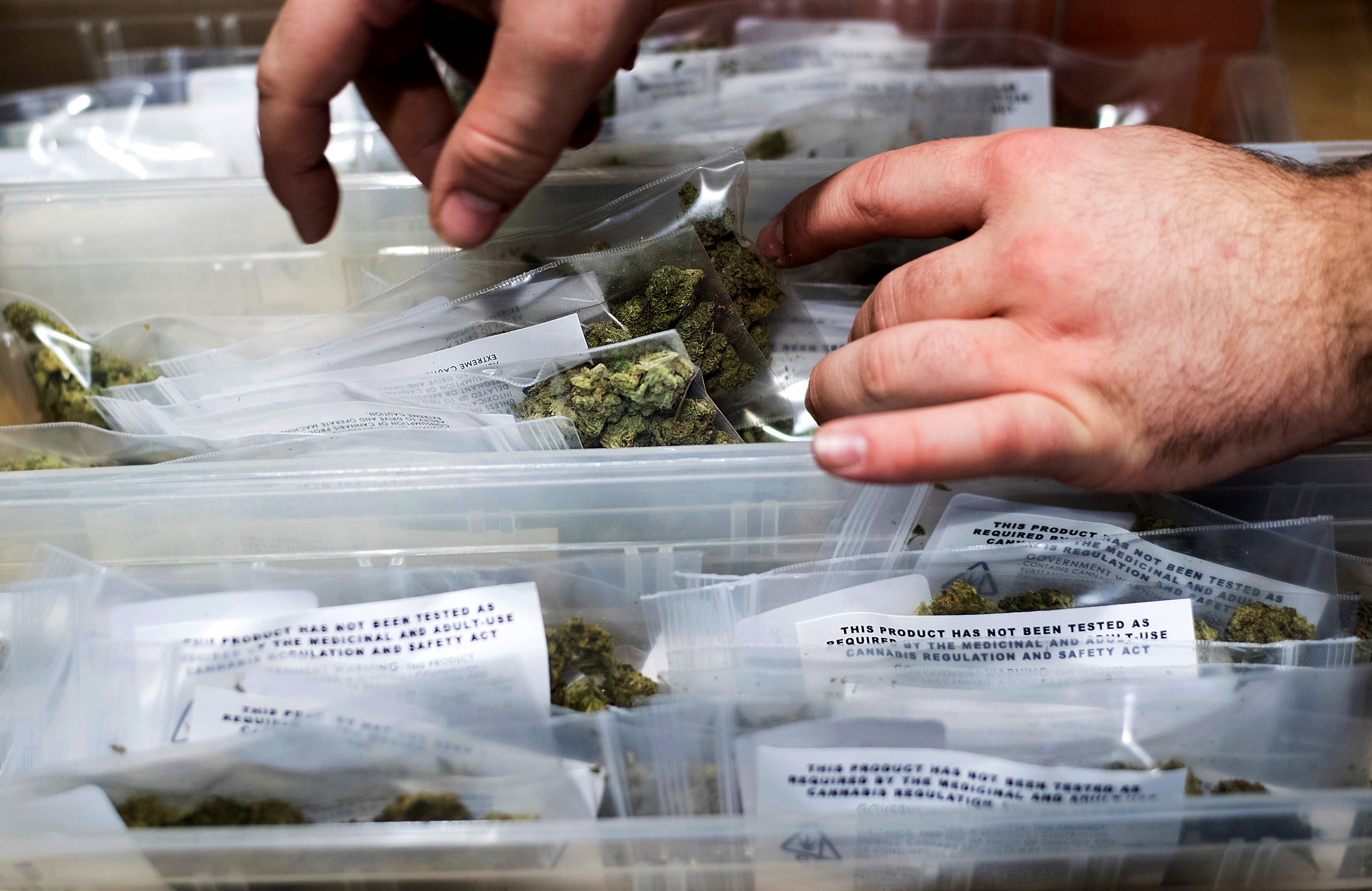Los Angeles faces lawsuit over marijuana delivery licenses
Two marijuana trade organizations filed a lawsuit against the nation’s largest legal pot market over restrictions on stand-alone delivery services that have blocked them from obtaining licenses until 2025

Your support helps us to tell the story
From reproductive rights to climate change to Big Tech, The Independent is on the ground when the story is developing. Whether it's investigating the financials of Elon Musk's pro-Trump PAC or producing our latest documentary, 'The A Word', which shines a light on the American women fighting for reproductive rights, we know how important it is to parse out the facts from the messaging.
At such a critical moment in US history, we need reporters on the ground. Your donation allows us to keep sending journalists to speak to both sides of the story.
The Independent is trusted by Americans across the entire political spectrum. And unlike many other quality news outlets, we choose not to lock Americans out of our reporting and analysis with paywalls. We believe quality journalism should be available to everyone, paid for by those who can afford it.
Your support makes all the difference.Two marijuana trade organizations filed a lawsuit Monday against the nation’s largest legal pot market over restrictions on stand-alone delivery services that have blocked them from obtaining licenses until 2025.
The lawsuit against Los Angeles and its Department of Cannabis Regulation seeks to overturn rules enacted earlier this year that postponed the availability of those licenses for certain businesses, even though broad legal sales began in the state in January 2018.
Under the changes, those licenses would only be available to so-called social-equity operators — people, many of color, who were arrested or convicted of a marijuana-related offense or lived in neighborhoods marked by high marijuana arrest rates.
The lawsuit does not seek to limit the right of social-equity applicants to obtain delivery licenses, but wants the court to permit other stand-alone delivery businesses to apply, which is what the law initially allowed.
The revised regulation, as rewritten by City Council in July, “is a death blow,” said Zachary Pitts, CEO of Ganja Goddess delivery service, who filed the suit along with the trade groups Southern California Coalition and the California Cannabis Couriers Association.
“It’s devastating. No one is going to last until 2025,” Pitts said.
The city cannabis agency and the city attorney’s office had no immediate comment.
The lawsuit marks the latest sign of turbulence in Los Angeles' troubled marijuana market, which was once expected to be a world-leading cannabis economy. Instead, illegal sales continue to thrive while legal businesses struggle with hefty taxes, limited licenses and dense regulations that they say choke growth.
Coalition executive director Adam Spiker said delivery businesses have been waiting since 2018 to enter the LA market, only to have the city reverse course as it sought to address widespread complaints about its licensing and social-equity programs. Many have pulled out, damaging the supply chain.
“These people have sat here and waited” to legally enter the market, Spiker said. “Out of nowhere their pathway ... was taken.”
The lawsuit said that the city cannabis agency was initially required by law to issue 20 licenses under a delivery pilot program to non-social equity businesses. But the agency never accepted applications for those licenses through mid-2020.
Instead the law was recast, and only social-equity license holders would be eligible for new retail and delivery licenses through 2025.
The lawsuit said their rights were violated by “unreasonable delay and poor handling of the licensing process, followed by a change in the law.”
Pitts said the lack of stand-alone delivery licenses in LA poses economic and organizational problems for his company, which has manufacturing and distribution licenses in Los Angeles, while its primary delivery license is in Oakland, east of San Francisco. He said the company has invested hundreds of thousands of dollars in LA in anticipation of a delivery license, which is now unavailable until 2025.
The delay in licenses will only open another pathway for illegal operators to flourish, he said.
In Los Angeles “every part of the cannabis industry has gotten licensing, except delivery,” he added. “It was taken away from us and it has real consequences. It's only hurting people.”